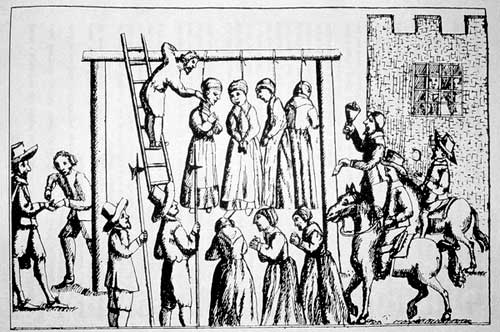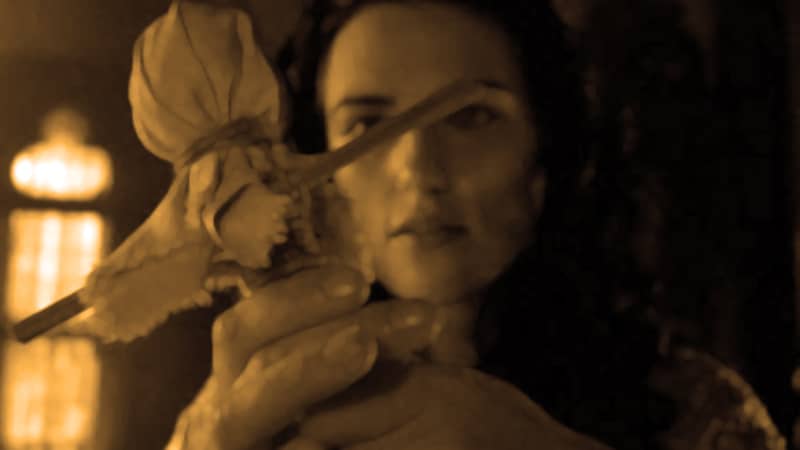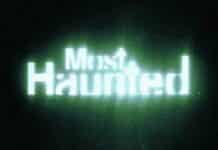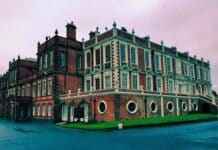JON KANEKO-JAMES tell us the Pendle Witch executions were the result of the testimony of a little girl, Jennet Device

Child witches have probably killed hundreds.
As a working historian I can attest that I know of who were killed by child witches.
Not only that, but out of the 40,000 to 60,000 killed during the era of the witch trials, hundreds were put in their graves by witch children.
This is not to say that the children themselves were really witches, or that the lurid Sabbats they described ever really took place. The issue is that those in charge witches believed these children’s testimony well enough to send witches to the noose.
James VI, the Scottish King who inherited Elizabeth’s vacant throne, wrote the book Demonology in 1597, calling Christians to arms against witches. In it, he writes, “Children, women and liars can be witnesses over high treason against God,” writing of witches that, “…they should be consumed by fire – yet in every country according to the law and custom thereof, but regardless of sex, age or rank.”
Even a hundred years later, James Hutchinson, the minister of Kilallan, preached to judges that a young girl should still be considered a witch because of the ‘covenant’ she had made through her parents with the Devil.
Who was Jennet Device?
Jennet Device (probably pronounced ‘Devies’ or ‘Davies’) was the nine-year-old daughter of Elizabeth Device.
When her mother had met a pedlar, John Law, on the road and remonstrated with him the unfortunate man had suffered a terrible illness – paralysis, blindness and a crippling inability to speak.
Modern medicine might call it a stroke, but the for the citizens of Early Modern Pendle Forest it was the last straw in an ongoing war of antisocial behaviour and feuding between Elizabeth ‘Demdike’ Southerns, and Anne ‘Chattox’ Whittle.

Both women were the matriarchs of local families with reputations for witchcraft – years earlier a neighbour, Robert Nutter, had accused Chattox of bewitching his father.
It was, however, the testimony of Jennet Device that was to prove key. After the initial wave of witches – Demdike, Chattox, Anne Redfearn and Alizon Device – had been arraigned to the Lancashire Assizes the case at Pendle could have ended. The local magistrate, Roger Nowell, had done his duty by interrogating the suspects and securing a confession that included black magic and familiar spirits.
The deaths in the Pendle area could have ended with just these four women, if not for a gathering at the Device family home that brought Jennet Device and her brother to the attention of the law. For Roger Nowell, the two youngsters represented a rich vein of new evidence.
Sabbat at Malkin Tower
A few days after the four women were committed to Lancaster for trial at the county Assizes, Nowell became aware that the Device family and some friends had held a gathering at Malkin Tower, a cottage that was the Device family home.
Henry Hargreaves, the parish constable, took Elizabeth Device’s son James to the house. Under the constable’s supervision, he unearthed a wax figure and some teeth. Sufficient evidence of witchcraft.
Jennet Device, just nine years old, was present at the gathering in Malkin Tower. During an interview with Nowell and his fellow magistrate Nicholas Bannister, she told of how her brother had stolen a sheep because the Devil had been unable to find them meat for their feast.
From here the confession becomes the fancies of a child under pressure, aided by the semi-coherent confessions of her brother James, who the authors Edgar Peel and Pat Southern feel to be mentally challenged.
Jennet Device told of how the meeting at Malkin Tower had been a witch’s Sabbat: plotting to blow up Lancaster Castle and release their family members; to name Jennet’s sister’s familiar spirit, and to bring down the Lister family of Gisburn.
This led to a huge number of arrests, with friends and neighbours infected by the accusation of witchcraft. It also sealed the fate of the four women facing trial at the Assizes in August.
In the three months between her questioning and trial, Jennet Device seems to have become the perfect witness.
Jennet Device ‘the perfect witness’ at Pendle Witch trial
The pamphlet writer Thomas Potts reports her testimony: “[it] pleased God to raise vp a young maide her [Elizabeth Device’s] own daughter, to discouer all their Practices, Meetings, Consultations, Murhters, Charms and Villainies.”
Elizabeth cursed her daughter when she saw her, and Jennet was reduced to tears, but the judge ordered her led away and the girl placed on a table so that she could continue her testimony: confirming that her mother was a witch of three or four years experience, and that she had a spirit in the from of a young dog called Ball that had killed various members of the local community.
The judge, however, doesn’t seem to have taken Jennet’s evidence at face value.
Another trial featuring defendants from nearly Salmesbury had fallen apart when the child accuser was discredited, and Judge Bromley arranged an identity parade to test Jennet, who effortlessly identified the women she had identified in her deposition.
Even when the judge tried to draw Jennet on her accusations, attempting to get her to condemn fictional people whom he had invented, the girl refused to be tricked, holding that Joan a Style and Joan a Downe were not present at the feast, and that she had not heard of either of them.
Whether Jennet Device’s testimony was the result of her some malevolent wish to destroy her family, or (more likely) the expert coaching of the Pendle Magistrates, her testimony, along with her learning challenged brother, certainly killed the majority of the Pendle Witches.









Good article and, yes, the conclusions are spot on. There is the question of where Jennet was actually kept during the months between the arrest of her family following the Malkin Tower gathering, and her appearance at court. My feeling – and I guess that of others – is that she was looked after at Read Hall and groomed in her testimony by Roger Nowell. And why was Nowell so determined to get them convicted? Political ambition and wanting to please his masters back in court is one possibility. The presence of Alice Nutter in his bag could well be the other, if there is truth in the rumoured land dispute.
Barry – that’s interesting, I hadn’t thought perhaps as much I could have about the property dispute angle. I agree that she was probably looked after and drilled in her testimony at Read Hall. As to why he went after them so hard… I seem to remember a couple of commentators remarking that the Pendle case is distinctive in that it isn’t just tried on the basis of the new (or, at least new to them) witchcraft act, but it specifically uses and references James’ book Daemonology, which does add weight to the idea that it was an attempt to curry favour at court.
I seem to remember either the Peele & Southerns book or possibly Marion Gibson remarking that Nowell had been at the forefront of persecuting Catholics, which might have easily progressed to the persecution of witches, if only because by 1612 the Catholics are still persecuted and illegal, but the greatest period of perceived threat had passed, so there might not have been so much kudos in hunting them down anymore.
There’s also the fact that getting them convicted by the higher court might have been important to Nowell’s pride: even James has started debunking witchcraft accusations by the 1610s (James debunked the Anne Gunter case as early as 1604) and if it his verdict was overturned at the Lancashire Assizes, he’d risk losing any status he might have gained by being seen as a typical credulous provincial magistrate (I seem to recall there were some fairly scathing things being said about provincial magistrates starting around that time, although it might have started as early as Reginald Scott).
Picture the scene. Whalley Abbey now dissolved, no jobs to be had by local men working for the Abbey, no more can you go to the gate and get a loaf of bread or some oats or Ale. On top of that you have to worship God in a different way. No more are the Gentry passing through Whalley and getting a nights lodging at The Abbey. Roger Nowell would be a minor player in the big scheme of things. Here was his chance and many a misdemeanour that had been brought to his attention before and disregarded was now added to the list. Trying to win favour with King James would have been the driving force.
Poor Jennet would have been so intimidated by these high ranking officials she would have said anything they wanted her to say.
The point about Roger Nowell wanting Alice Nutter’s land is a valid one and we at The History Group in Whalley are currently researching this.
One would have thought that if they could summon the forces of evil and ride the storms blowing ships off course and change shape etc etc, why did they languish in that dark dungeon (I have been in … horrendous ) and not put their skills to use.
I think they should have a Royal Pardon
Jean Lord, any dark arts that witches may have held, could have been offset by the presence of, and attendance by, prison chaplains. Just a suggestion.
A few years back, a petition to Jack Straw (the then British Home Secretary) was presented, calling for such a pardon to be given to the so-called Pendle Witches.
That petition was rejected.
In the end Jennet herself was convicted of witchcraft due to the testimony of a child!
merseymale,…unfortunately, it cannot be proven that the two Jennet’s were one and the same.
merseymale,…there is no proof of that.
I would like to know if you have any books on the Pendle witch trials and what university you studied at
At the time of the Pendle Witches trial, Jennet Device was 11, nearly 12 years old, and not 9 years old as wrongly stated in some sources. This can be confirmed by consulting the church records.
I’ve just read your piece on Jennet device, have you ever been to pendle Hill? Or Lancaster where they were hung?, Jennet was a child. She probably couldn’t read or write and was probably very scared. I live very close to pendle Hill and I’m very protective of ‘The Witches’.
It was her sister Alizon who met John Law, not her mother Elizabeth. Please can you correct this.